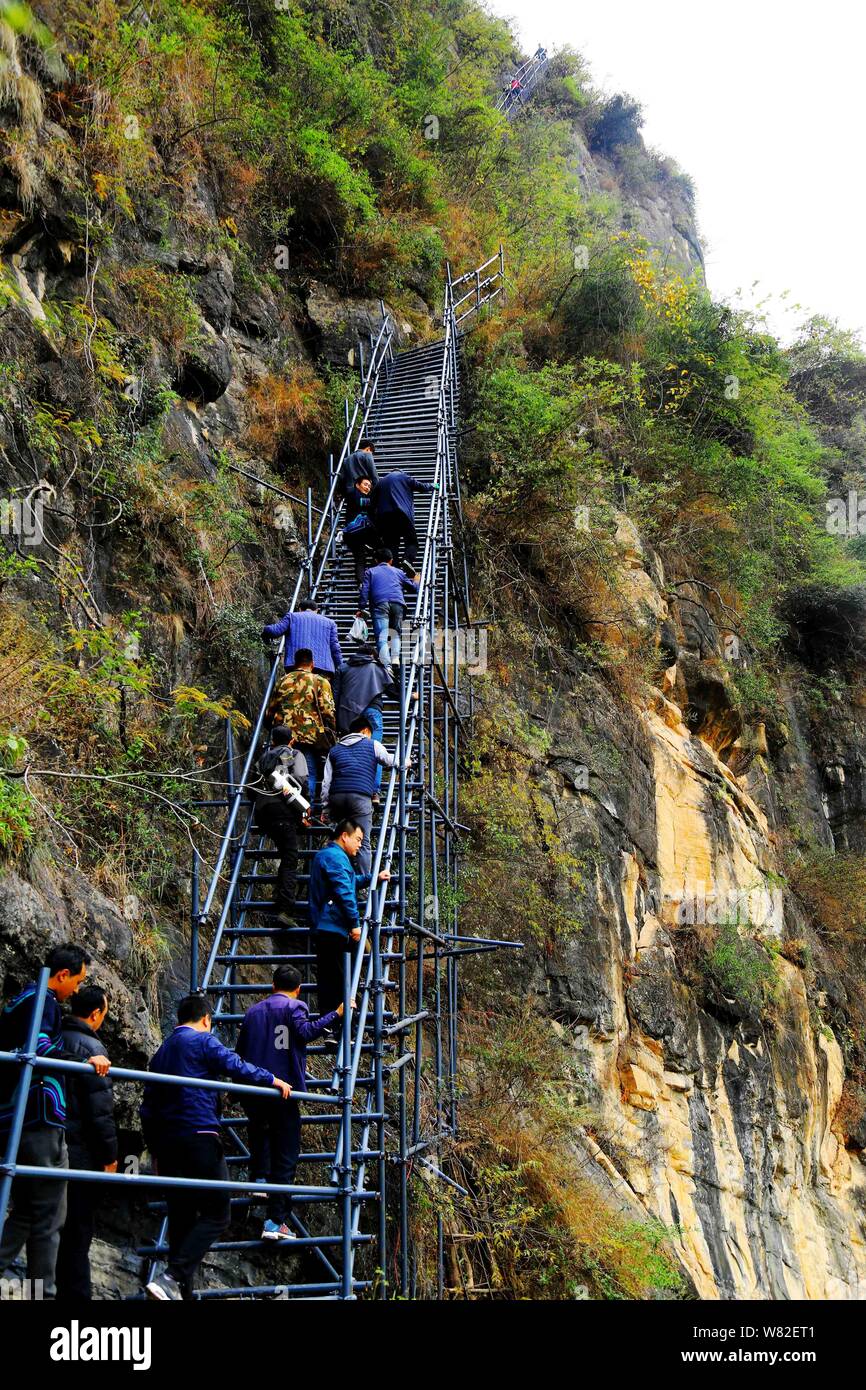Tourists climb up an 800-meter cliff on a steel ladder in a mountainous area in Atuler village, Zhaojue county, Liangshan Yi autonomous prefecture, so

Image details
Contributor:
Imaginechina Limited / Alamy Stock PhotoImage ID:
W82ET1File size:
63.3 MB (3.1 MB Compressed download)Releases:
Model - no | Property - noDo I need a release?Dimensions:
3840 x 5760 px | 32.5 x 48.8 cm | 12.8 x 19.2 inches | 300dpiDate taken:
13 February 2017Photographer:
ImaginechinaMore information:
Tourists climb up an 800-meter cliff on a steel ladder in a mountainous area in Atuler village, Zhaojue county, Liangshan Yi autonomous prefecture, southwest China's Sichuan province, 13 February 2017. An isolated village in Sichuan Province became the centre of world attention last May because local students had to climb an 800-metre long rattan ladder secured to a sheer cliff face to get home from school. Now, the ladder has been replaced by a steel one, which students say saves them more than one hour in commuting. Atule'er Village, home to 72 families and 15 students aged between six to 15, is known as a "cliff village" as it's located over 1, 400 meters above sea level. Its only link to the outside world is the ladder. The rattan structure used in the past was roughly made by villagers out of rattan and bamboo and it didn't include any railings or other safety features, while the new one is reinforced with steel beams and has cost the village government one million yuan, or about 145, 000 US dollars. For students too young to climb the ladder, the village has started a preschool education class. As poor road conditions have impeded economic development, the local government says they plan to develop tourism to alleviate poverty, attracting visitors to appreciate the natural resources of rivers and canyons and the cultural uniqueness of the lives of the indigenous Yi ethnic minority. It's reported that the government has already signed contracts with tourism developers.